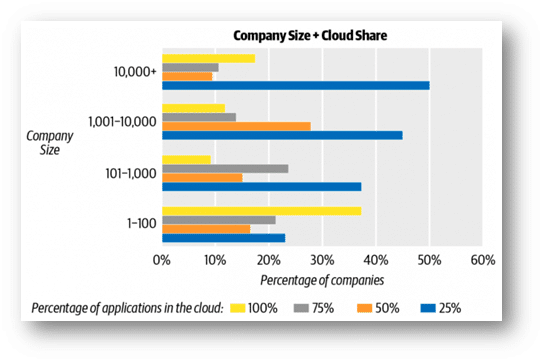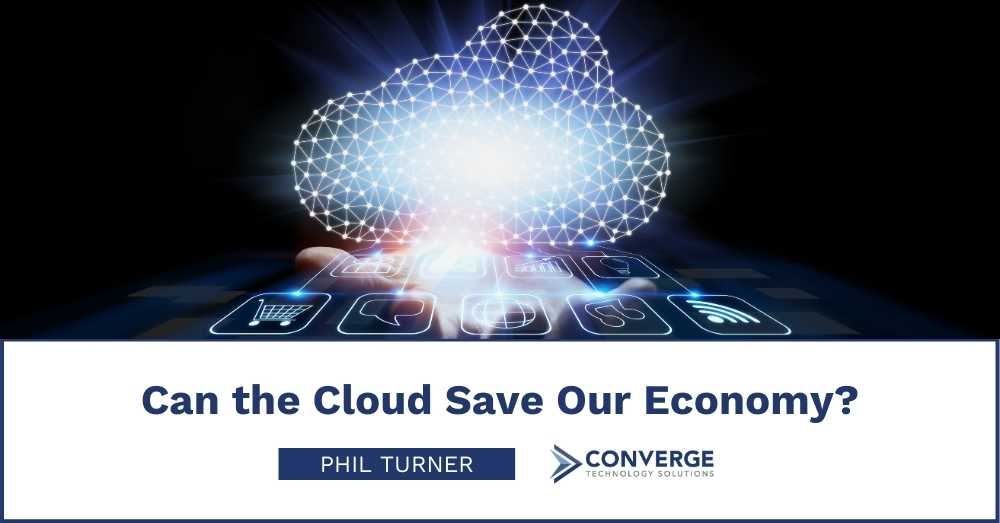I believe the term “unprecedented” has been said more times in the last 12 months than in the last 35 years (likely longer). Of course, the pandemic is top of the list when using this word, but things like social unrest, organized cybercrime, polarizing political climates, cryptocurrency evolution, government cyberwarfare, and our linked global economy have also changed our world in ways which are, well, “unprecedented”.
However, if we step back from the noise, there can be many things to learn from these extraordinary events. One such lesson I believe will last (and make things better) is the realization of the true benefits of actual resilience. Resilience as individuals, as organizations, and as a society. Resilience can be defined as either: “the capacity to recover quickly from difficulties; toughness.” Resilience can also show up in surprising ways.
If you look at organizations who fared well during the trials of the last 12 months, it was not those with extensive disaster recovery systems who fared best. Instead, it was the companies who, either through thoughtful planning or happy coincidence, had a resilient business execution model in place. Much of the resilience those companies experienced was due to prior emphasis on Cloud adoption.

Let’s think about it. If your organization was set up so that:
- Your customers/clients/citizens could access your services from anywhere
- Your employees could do most of their work from anywhere
- Your business processes were implemented digitally so you could run them anywhere
- Your data was protected and accessible where you needed
- A LOT of your systems, applications and data were automatically monitored, provisioned, and maintained from anywhere
You were automatically far more resilient, nimbler, and therefore able to adapt quickly to changing physical environment realities and restrictions. Then, if you add the ability for those already Cloud-hosted systems to retrieve business processes and data and for customer/partner interaction portals to be accessed, enhanced, expanded, scaled, analyzed, and shared via native Cloud capabilities for development, robotic process automation, analytics, edge connectivity, AI, web, and mobile access, you move beyond operational resilience into business process resilience.
So, therein lies my question. Can the Cloud save our economy?
A Cloud centric strategy which includes the following items can go a long way in materially improving your business resilience:
- Lift and shift for infrastructure resilience, remote access and operations, automated provisioning and maintenance, best in class security, and dynamic scaling capabilities
- Automated data protection and workload resilience/HA/DR
- Integration with Cloud native services and using API to access legacy business processes and data
- Modernizing your core applications to be more granular and dynamic through refactoring and containerization where appropriate
To go further, a multi and hybrid cloud strategy provides the greatest resilience. Should a given Cloud provider unexpectedly become unavailable, you will have other Cloud providers and/or your own on-premises capability at your fingertips.
This “cloud approach” to organizations, whether commercial businesses, governments, healthcare, retail, etc., makes a huge difference in how they can respond to “unprecedented” change. Their ability to stay operating; service their customers, constituents, patients; and work with other organizations while keeping their employees working keeps our economic engine running. In today’s world, cloud is big part of enabling businesses, employees, consumers, and governments, giving them the opportunity to rebound faster, handle greater adversity, and adapt quickly. So, in part, the cloud can save the economy.
If you’re not there yet, understand that making cloud viable for your business is a journey. Start where you are, understand where you want to get to, and, application by application, form a plan that is cohesive and includes operational efficiencies and flexibility. Additionally, get help from those who have already done it, ideally more than once and on more than one platform. A good partner will help you make your organization more resilient in a fiscally responsible manner so you can thrive during both good times and challenging trials.
One of the things the Converge Cloud team enjoys most is understanding your planned journey and joining you wherever you are at. We use our multi-cloud experience to help guide you along your way and offload your organization so you can focus on the business decisions while we help enable the business outcome. We want you to benefit from our on-prem experience, what we’ve learned in Cloud migrations, our knowledge of all major cloud platforms, and our ability to design a unique solution for your organization based on what we have seen be successful in platforms, toolsets, and application modernization. your organization based on what we have seen be successful in platforms, toolsets, and application modernization.

Our approach is granular and business intimate. While we support many platforms for our customers, there is no benefit to you unless we are agnostic in our approach. The advantage is using our experience, getting to know your business specific needs and aspirations, and then comparing alternatives with specific recommendations based on knowledge, not because we only have one option from which to choose. Converge is skilled in everything from the data center to the cloud, from the core to the edge, and all the way to end user experience. Let us be your cloud guide and help save the economy, enhance your business, and your bottom line as we continue to navigate these “unprecedented” times together.





